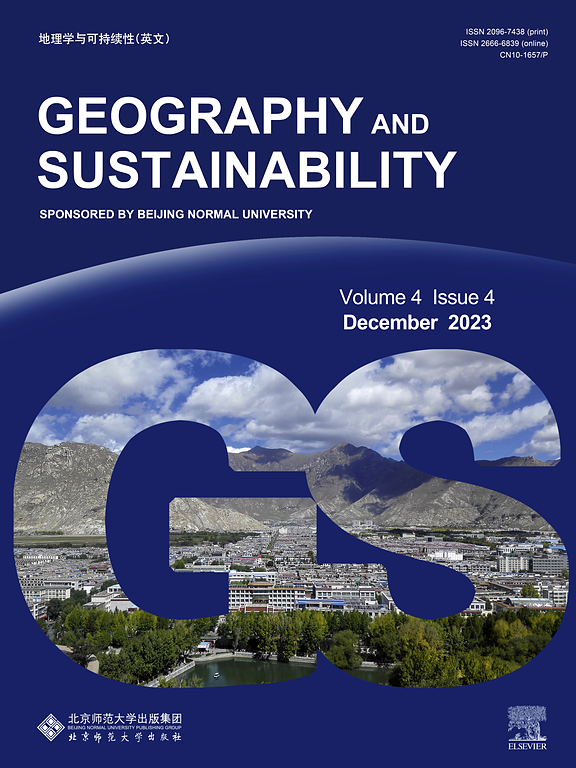Geography and geographical knowledge contribute decisively to all sustainable development goals and targets
IF 8
1区 环境科学与生态学
Q1 GEOGRAPHY, PHYSICAL
引用次数: 0
Abstract
Geography is a discipline that touches multiple sciences and has been key to bridging numerous fields of knowledge. This gives geography the advantage of connecting natural (e.g., biology, ecology, climatology, geomorphology) with social and human (e.g., education, demography, sociology) sciences. The spatialisation of information from different sciences allows us to understand distribution patterns and connections between different realities. Thus, geographical knowledge is essential for an integrated and consistent understanding of our world. The Sustainable Development Goals (SDGs) established by the United Nations (UN) in 2015 were essential to unifying the world towards a common goal. To achieve these, 17 goals and 169 targets were created, and knowledge from multiple sciences is needed to support them. It is a huge challenge, and different knowledge branches are needed to connect. Geography and geographical knowledge have this capacity and support all 17 goals and 169 targets. Although this is a reality, as it will be explained in this editorial, SDG’s achievement for some is becoming utopic and unrealistic due to our world’s differences. It is time to think about the post-2030 SDGs, in which geography and geographic knowledge will be essential unequivocally.

求助全文
约1分钟内获得全文
求助全文
来源期刊

Geography and Sustainability
Social Sciences-Geography, Planning and Development
CiteScore
16.70
自引率
3.10%
发文量
32
审稿时长
41 days
期刊介绍:
Geography and Sustainability serves as a central hub for interdisciplinary research and education aimed at promoting sustainable development from an integrated geography perspective. By bridging natural and human sciences, the journal fosters broader analysis and innovative thinking on global and regional sustainability issues.
Geography and Sustainability welcomes original, high-quality research articles, review articles, short communications, technical comments, perspective articles and editorials on the following themes:
Geographical Processes: Interactions with and between water, soil, atmosphere and the biosphere and their spatio-temporal variations;
Human-Environmental Systems: Interactions between humans and the environment, resilience of socio-ecological systems and vulnerability;
Ecosystem Services and Human Wellbeing: Ecosystem structure, processes, services and their linkages with human wellbeing;
Sustainable Development: Theory, practice and critical challenges in sustainable development.
 求助内容:
求助内容: 应助结果提醒方式:
应助结果提醒方式:


